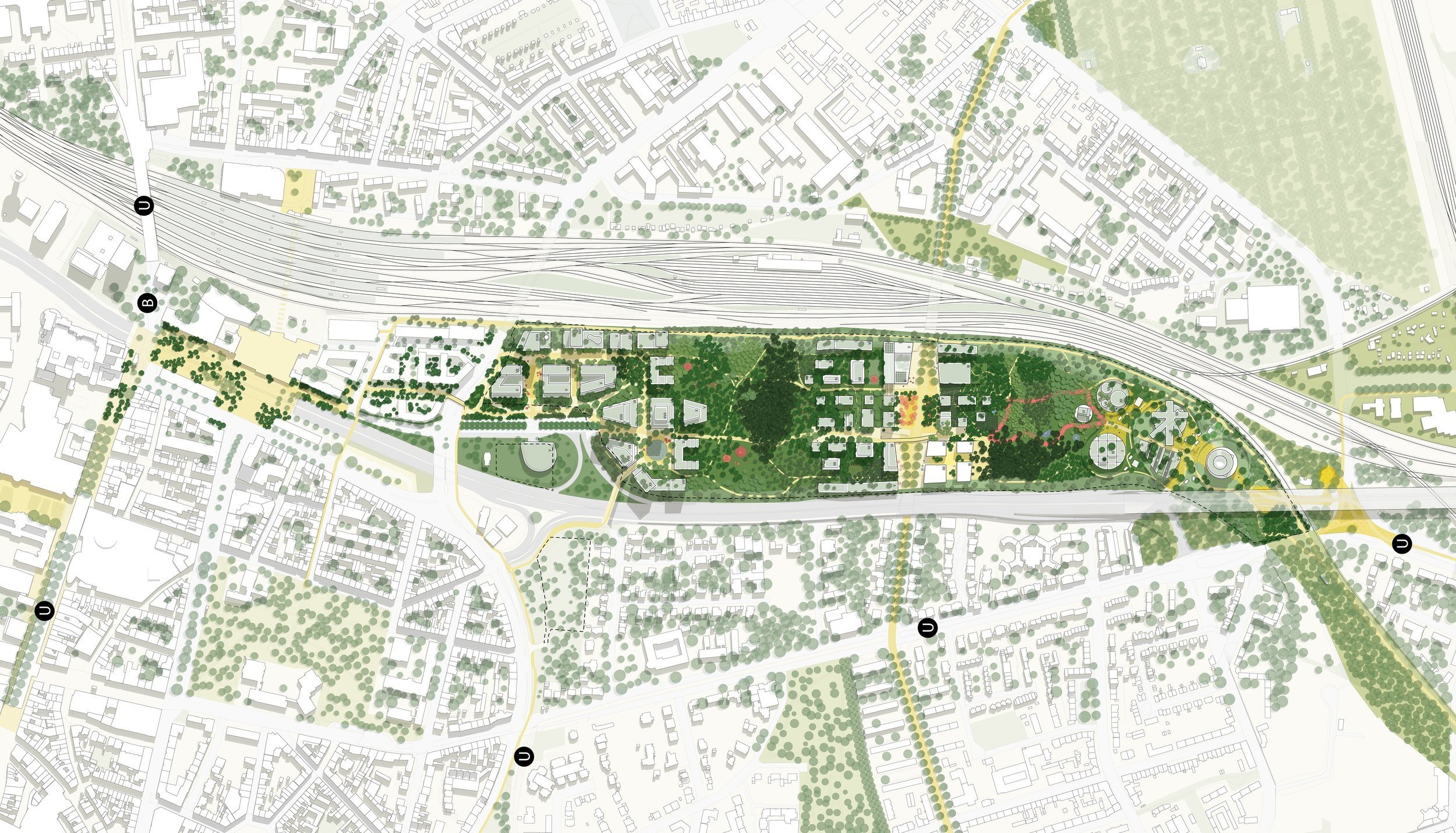
Waldviertel Duisburg
Waldviertel Duisburg – a plan implemented at the former freight station – provides Duisburg with answers to important contemporary questions by addressing the aspects of natural space, movement space connected to Duisburg’s lifestyle, and the nurturing of neighborhoods.
-
Location
Duisburg, GermanyYear
2020Program
Housing & Services
Trade & Production
Retail
Gastronomy
Hotel
Conference
Event
Elementary school
Garage
Waste transformer
Research & Development
Art & Culture
Sports Center
KITA -
MLA+
LOLA Landscape Architects
Bureau Stadsnatuur
Move Mobility -
Duisburger Gemeinnützige Baugesellschaft AG (GEBAG)
-
Design lead
Eric FrijtersProject lead
Duong BuiTeam members
Elena Luongo
Wesley Verhoeven
“By prioritizing active mobility, creating safe pathways, promoting cycling, and providing spaces for urban activities, the Waldviertel becomes a car-free neighborhood where residents and visitors can move safely and children can play freely.”
— Duong Bui
Duisburg prepares for climate change
Duisburg prepares for climate change by creating an urban forest at the former freight station, addressing biodiversity loss, the urban heat island effect, and air pollution. Waldviertel Duisburg replaces iconic architecture with a unique accessible forest landscape, serving as an ecological corridor, CO2 sink, and protection against extreme weather. The project involves community engagement in planting and nurturing native trees, adapting the urban forest’s growth to meet diverse human and environmental needs, while contaminated soil is remediated using trees or used as noise barriers along highways and railways. The public forest provides pathways, nature-rich spaces, adventure playgrounds, and gathering areas, inviting people for relaxation, play, and sports activities.
The Waldviertel at the former freight station accelerates the mobility transition in Duisburg and the region, aiming to connect with all city, regional, and global networks without relying on cars. By prioritizing active mobility, creating safe pathways, promoting cycling, and providing spaces for urban activities, the Waldviertel becomes a car-free neighborhood where residents and visitors can move safely and children can play freely.
Five key impulses focus on enhancing pedestrian routes, expanding cycling infrastructure, creating spaces for social activities, improving connections to subway stations and the main train station, and embracing sharing concepts and self-driving mobility as new transportation options. The Waldviertel in Duisburg’s city center provides space for residents to unfold and reinvent their lives, embracing diversity and a human scale approach. The three neighborhoods, Nord, Mitte, and Süd, respond to their location within the urban fabric and can be developed independently. Nord becomes a hub for business and institutional partners, while Mitte acts as a vital link, and Süd transforms into a future-oriented campus. Sound insulation measures protect the planned Waldviertel from noise pollution, with closed building structures and walls shielding against traffic noise. Ongoing evaluations will ensure the effectiveness of existing noise barriers in the southern area.
What can we do for you?
If you're interested in learning more about our innovative approach and the wide range of services we offer, simply drop your name and e-mail address in the form. We'll be in touch as soon as possible so you can have a closer look at what we can do for you.



